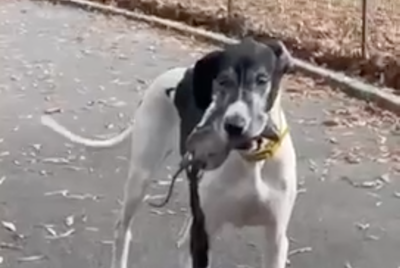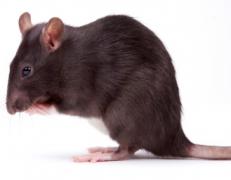Rat Sightings Are Up in New York City: What Pet Owners Should Know

Rat Sightings Are Up in New York City: What Pet Owners Should Know
It’s been all over the news in 2021: rat sightings are way up in New York City. While there’s plenty of speculation why, one thing is clear: increased interaction between rats and dogs is not good for the health of our fur families. Rats carry diseases that can be deadly to both dogs and humans, and rat poison can easily be consumed by a pet mistaking its flavor for a treat. Proper awareness and caution are necessary – read on for my concerns from a veterinary perspective.
Rats Carry Infections
New York City rats are known to carry some organisms of concern for both people and dogs. The most concerning disease found in rats is leptospirosis. Lepto, as it is commonly called, affects both humans and dogs. In September of 2021, the New York City Department of Health and Mental Hygiene reported a sharp increase in leptospirosis in people linked to rats. Dogs with leptospirosis are acutely ill, may have red eyes, abnormal liver blood tests and acute kidney injury requiring hemodialysis. Additionally, NYC rats can transmit Salmonella and Clostridium, which affect dogs by causing severe tummy upset.
Rat Poison and Dogs
I called the wise folks at Pet Poison Helpline and asked if a dog ate a rat that had eaten anticoagulant rat poison, could the dog develop hemorrhage? The Pet Poison Helpline staff felt this scenario was extraordinarily unlikely in a domesticated animal such as a dog or cat whose diet is not primarily rodents. On the other hand, wild cats like cougars or wild dogs like coyotes whose diet is principally rodents could be seriously affected by rodenticide in the rats they consumed. If you live in an area with wild animals, avoid anticoagulant rodent bait to protect wildlife. If your dog or cat eats rodenticide directly, seek veterinary care immediately.
Rat Bites for Humans and Dogs
Humans should avoid contact with rats because they can carry rat bite fever, a potentially deadly disease. Dogs seem to be less frequently affected by rat bite fever, but if your dog is bitten by a rat, make sure to clean the bite thoroughly with soap and water. Once you have finished cleaning the wound, then contact your veterinarian and make sure your dog is up to date on vaccination for leptospirosis.
How you can protect yourself and your dog from rat-borne diseases:
- Teach your dog “leave it.” You don’t want to touch the rat your dog has in its mouth.
- Prevent your dog from consuming rat poison placed by an exterminator.
- Talk to your veterinarian about the leptospirosis vaccine and if your dog should receive this inoculation.
- Eliminate any rats in your home or business.
- Wear protective gear if you are cleaning up from a rat infestation on your own.

































